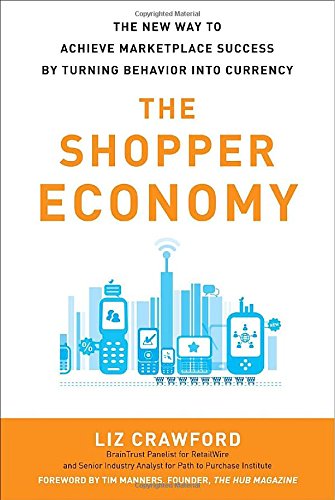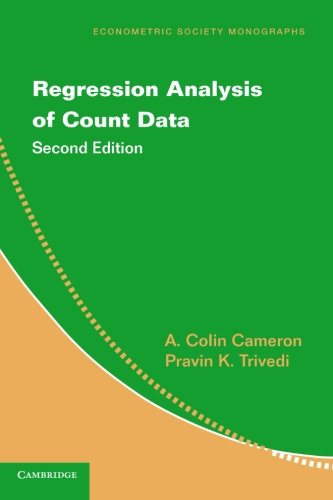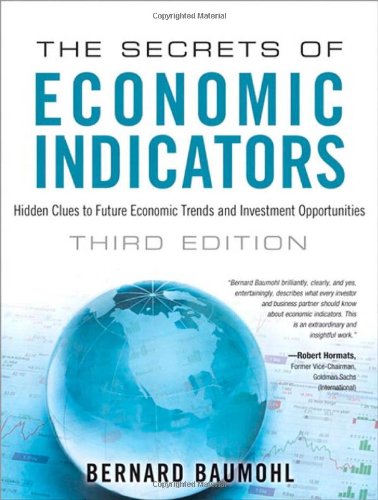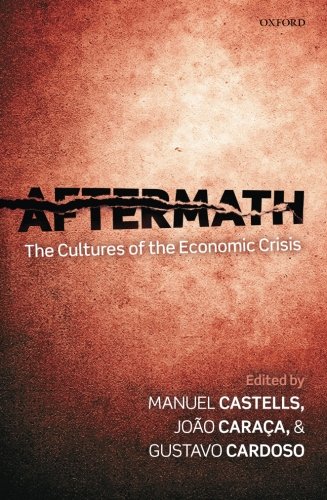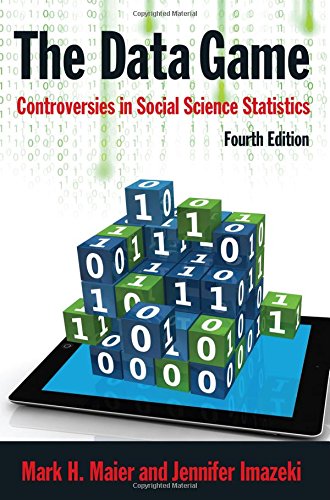CONSUMER BEHAVIOR
Crawford, Liz
The shopper economy : the new way to achieve marketplace success by turning behavior into currency / Liz Crawford. New York : McGraw-Hill, c2012. HF 5415.32 C73 2012
Consumers today are armed with a wealth of content–price comparisons, reviews, and even online inventory data–and this is good news for marketers, because these tools empower consumers, making them into shoppers who are more willing than ever to interact with your brand . . . but for a price. (Continue reading at Amazon.com)
ECONOMETRICS
Cameron, Adrian Colin
Regression analysis of count data / A. Colin Cameron, University of California, Davis, Pravin K. Trivedi, Indiana University, Bloomington. Second edition. New York, New York : Cambridge University Press, 2013. HB 135 E25 [no.44]
Students in both social and natural sciences often seek regression methods to explain the frequency of events, such as visits to a doctor, auto accidents, or new patents awarded. This book provides the most comprehensive and up-to-date account of models and methods to interpret such data. (Continue reading at Amazon.com)
ECONOMIC FORECASTING
Baumohl, Bernard
The secrets of economic indicators : hidden clues to future economic trends and investment opportunities / Bernard Baumohl. 3rd ed. Upper Saddle River, New Jersey : FT Press, c2013. HB 3730 B38 2013
For years, investors, business strategists, and policymakers worldwide have turned to one book to help them translate the massive flow of economic data into knowledge for intelligent decision-making.The Wall Street Journal called this book “…the real deal,” saying it “miraculously breathes life into economic indicators and statistics.” That book is Bernie Baumohl’s classic best-seller The Secrets of Economic Indicators. Now, in a brand-new Third Edition, Baumohl has thoroughly updated his classic to reflect the latest US and foreign economic indicators, and brand-new insights into what all of today’s leading indicators mean. (Continue reading at Amazon.com)
ECONOMIC HISTORY
Brue, Stanley L.
The evolution of economic thought / Stanley L. Brue, Randy R. Grant. 8th ed. South-Western, [England] : Cengange Learning, c2013. HB 75 O8 2013
In this scholarly and timely presentation of the history of economic thought, you’ll see how new ideas, evidence, problems, and values can be used to reconsider basic disputes and major contributions of the past. The Evolution Of Economic Thought, 8/e, International Edition covers the history of economics, the philosophies that drive the economic way of thinking, the ideas of the great economic thinkers and their logical connections to the world. You’ll see how Robert Solow’s pioneering model can be used to discuss recent renewed emphasis on growth theory and technological change and will explore antitrust perspectives and game theory.
GLOBAL FINANCIAL CRISIS
Aftermath : the cultures of the economic crisis / edited by Manuel Castells, João Caraça, and Gustavo Cardoso. Oxford : Oxford University Press, 2012. HB 3717 2008 A47 2012
The crisis of global capitalism that has unfolded since 2008 is more than an economic crisis. It is structural and multidimensional. The sequence of events that have taken place in its aftermath show that we are entering a world that is very different from the social and economic conditions that characterized the rise of global, informational capitalism in the preceding three decades. (Continue reading at Amazon.com)

Crash and beyond : causes and consequences of the global financial crisis / Andrew Farlow. Oxford : Oxford University Press, 2013. HB 3717 2008 F37 2013
In 2008 the world was plunged into financial and economic crisis. This book explores the multiple roots of the crisis, including the build-up of global economic imbalances, the explosion in the use of novel financial instruments, the mismanagement of risk, and the specific roles played by housing and debt. It reviews the evidence that, on the eve of the crisis, all was not well and that many policy makers and finance industry leaders ignored the dangers. (Continue reading at Amazon.com)
INTERNATIONAL ECONOMIC RELATIONS

Principles of international economic law / Matthias Herdegen. Oxford, United Kingdom : Oxford University Press, c2013. K 3820 H47 2013
Principles of International Economic Law gives a comprehensive overview of the central topics in international economic law, with an emphasis on the interplay between the different economic and political interests on both the international and domestic levels. The book sets the classic topics of international economic law, WTO law, investment protection, commercial law, and monetary law in context with human rights, environmental protection, good governance, and the needs of developing countries.
POVERTY
The Oxford handbook of the economics of poverty / edited by Philip N. Jefferson. Oxford, New York : Oxford University Press, 2012. HC 79 P6 O93 2012
Poverty is a pressing and persistent problem. While its extent varies across countries, its presence always represents the diminution of human capacity. Therefore, it seems natural to want to do something about it. Have countries made progress in mitigating poverty? (Continue reading at Amazon.com)
SOCIAL NETWORKS
Group formation in economics : networks, clubs and coalitions / edited by Gabrielle Demange, Myrna Wooders. Cambridge, [England] : Cambridge University Press,2005. HM 741 G76 2005
Broad and diverse ranges of activities are conducted within and by organized groups of individuals, including political, economic and social activities. These activities have become a subject of intense interest in economics and game theory. Some of the topics investigated in this 2005 collection are models of networks of power and privilege, trade networks, co-authorship networks, buyer-seller networks with differentiated products, and networks of medical innovation and the adaptation of new information. Other topics are social norms on punctuality, clubs and the provision of club goods and public goods, research and development and collusive alliances among corporations, and international alliances and trading agreements. While relatively recent, the literature on game theoretic studies of group formation in economics is already vast. This volume provides an introduction to this important literature on game-theoretic treatments of situations with networks, clubs, and coalitions, including some applications.
STATISTICAL METHOD
Maier, Mark H.
The data game : controversies in social science statistics / Mark H. Maier and Jennifer Imazeki. 4th ed. Armonk, New York : ME Sharpe, c2013. HA 29 M244 2013
This inexpensive supplement introduces students to the collection, uses, and interpretation of statistical data in the social sciences. It is a welcome add-on to all social science introductory statistics and research methods courses. Separate chapters are devoted to data in the fields of demography, housing, health, education, crime, the national economy, wealth, income, poverty, labor, business statistics, and public opinion polling, with a concluding chapter devoted to the common problem of ambiguity in social science statistics. Each chapter includes multiple case studies illustrating the controversies, overview of data sources including web sites, chapter summary and a set of case study questions designed to stimulate further thought, and detailed notes providing references for all the controversies discussed in the chapter.



